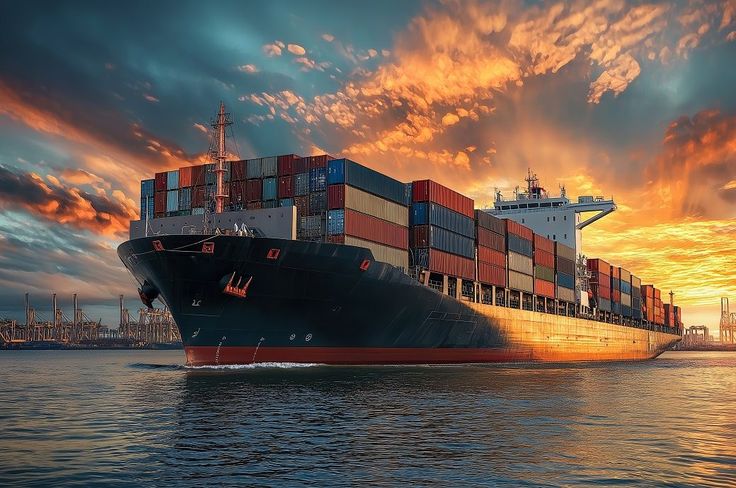- By TOP CHINA FREIGHT
- August 18, 2025
- Shipping
Table of Contents
Freight insurance, also known as cargo insurance, is a type of coverage designed to protect goods while they are being transported. Whether cargo is moved by road, rail, sea, or air, freight insurance safeguards against financial losses caused by theft, damage, accidents, or unforeseen events during transit. Understanding what is freight insurance is crucial for businesses and individuals involved in shipping, as it ensures the safe and secure delivery of goods and protects the value of your investment.

Understanding Freight Insurance Coverage
Freight insurance provides protection against a variety of risks during the movement of goods. Coverage can differ based on the shipping method, cargo type, and insurance provider.
| Coverage Type | Description | Example |
|---|---|---|
| All-Risk Coverage | Offers the broadest protection, covering almost all risks except those specifically excluded. | A shipment of electronics damaged during rough handling in a warehouse. |
| Named Perils Coverage | Covers only the risks explicitly listed in the policy, such as fire, theft, collision, or weather damage. | A shipment of furniture damaged during a storm if the storm is listed as a covered peril. |
| Carrier Liability | Legal responsibility of the carrier to compensate for lost or damaged goods, often limited in scope and amount. | A trucking company may only be liable for a small portion of cargo value if a minor accident occurs. |
Coverage choice depends on the nature of the cargo and the transportation method. For instance, fragile or high-value goods often require all-risk coverage to ensure maximum protection during long-distance transit.
Importance in Transportation
Transportation exposes cargo to many risks, from mechanical failures in trucks to piracy at sea. Freight insurance is essential because it transfers the financial burden from the shipper to the insurance provider. By understanding what is freight insurance, companies can make informed decisions to protect their shipments and maintain business continuity.
1.Financial Security:
If a shipment is lost or damaged, the insurance reimburses the shipper, preventing severe financial losses.
2.Supply Chain Reliability:
Insured cargo ensures that supply chain disruptions are minimized.
3.Customer Confidence:
Buyers are reassured that their goods are protected during shipping.
For example, an e-commerce company shipping hundreds of packages internationally would face huge financial risks without proper insurance. Freight insurance allows them to ship confidently across borders, knowing that losses will be covered.
Factors Influencing Freight Insurance Premiums
Insurance premiums depend on multiple factors related to the cargo and transportation conditions:
1.Type and Value of Cargo:
High-value electronics, artwork, or pharmaceuticals require higher coverage.
2.Mode of Transport:
Air freight is faster but costlier; sea freight has higher exposure to natural risks.
3.Shipping Route:
Dangerous routes or areas with high piracy rates increase premiums.
4.Coverage Type:
All-risk insurance costs more than named-peril policies.
5.Deductibles:
Higher deductibles reduce premiums but increase out-of-pocket expenses for claims.
For instance, shipping a container of fragile medical devices from China to the US by sea may have higher premiums due to long transit times, exposure to weather, and high cargo value.
Claims Process
| Step | Description |
|---|---|
| Notification | Report the incident promptly to the insurance provider. |
| Documentation | Submit invoices, proof of shipment, and photos of damage. |
| Assessment | The insurer reviews the claim against the policy terms. |
| Settlement | Approved claims are compensated according to the coverage limits. |
Exclusions to Consider
Freight insurance policies often contain exclusions. Understanding them ensures that shippers are not caught off guard:
- Improper Packaging: Damage due to inadequate packaging may not be covered.
- Pre-existing Damage: Existing damages prior to shipment are excluded.
- War, Strikes, or Civil Unrest: Losses resulting from conflicts may be excluded unless additional coverage is purchased.
- Delays: Losses due to delays in transit are generally not covered unless specified.
Shippers can minimize risk by carefully following packaging guidelines and ensuring accurate cargo documentation.
Freight Insurance for Different Transportation Modes

Road Transport:
Covers accidents, theft, and damage during loading/unloading. Roads may involve hazards such as traffic accidents, weather, or road conditions.

Rail Transport
Provides protection against derailments, collisions, or theft. Rail insurance is important for bulk goods like grains, chemicals, or machinery.

Sea Freight
Marine insurance protects against piracy, shipwrecks, storms, and container damage. Sea freight is often slower, increasing exposure to potential hazards.

Air Freight
Covers accidents, theft, and handling damage. Air shipments are faster but often higher in value, making insurance crucial.
Choosing the Right Freight Insurance
Fragile or perishable items may need specialized coverage.
Certain countries or routes carry higher risk.
Different risks exist for air, sea, road, and rail.
Balance coverage with cost efficiency.
Benefits of Freight Insurance
Freight insurance offers:
1.Financial Protection:
Mitigates the cost of lost or damaged goods.
2.Risk Management:
Transfers transportation risks from the business to the insurer.
3.Peace of Mind:
Shippers can focus on operations without fearing cargo loss.
4.Business Continuity:
Ensures shipments reach customers without major interruptions.
For example, a company exporting machinery internationally can operate with confidence knowing their expensive cargo is insured against shipping risks.
Legal Framework Governing Freight Insurance
Freight insurance is subject to international conventions and national laws:
1.Road Transport:
Governed by the CMR Convention for international carriage by road.
2.Rail Transport:
Governed by the CIM Convention.
3.Sea Transport:
International maritime laws define carrier liability and insurance requirements.
Understanding these legal frameworks ensures compliance and effective risk management for shippers.
Future Trends in Freight Insurance
Online platforms simplify policy management and claims processing.
Improved risk assessment and personalized coverage based on shipping patterns.
Insurance offerings increasingly consider environmental impact and eco-friendly shipping.
Conclusion
Understanding what is freight insurance? is essential for any business involved in shipping goods. It protects against transportation risks, ensures financial security, and supports smooth operations. By selecting appropriate coverage, understanding exclusions, and staying informed on industry trends, businesses can safeguard their shipments, reduce financial risks, and maintain supply chain reliability.
Need a Shipping Quote?
If you want expert guidance and peace of mind, our team is ready to assist.
TJ China Freight offers tailored solutions to help businesses of all sizes ship more reliably from China.
FAQs
Q1:Do I always need freight insurance?
While it’s not always legally required, freight insurance is highly recommended, especially for high-value, fragile, or international shipments. It reduces financial risks for shippers and businesses.
Q2:What types of coverage are available?
- All-Risk Coverage: Covers almost all possible risks except exclusions.
- Named Perils Coverage: Only covers risks listed in the policy.
- Carrier Liability: Limited compensation provided by the carrier for loss or damage.
Q3:Does the carrier’s liability cover my shipment?
Carrier liability is usually limited and may not cover all types of damage, especially concealed damage, improper packaging, or high-value cargo. Freight insurance provides more comprehensive protection.
Q4:How are premiums calculated?
Premiums depend on cargo value, type, transportation mode, shipping route, coverage type, and deductibles. High-risk routes and valuable goods increase costs.
Q5:What happens if my shipment is delayed?
Delays are usually not covered by standard freight insurance unless specifically stated in the policy. Check exclusions carefully.
